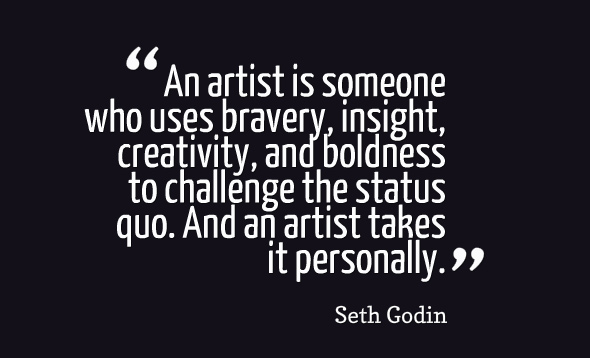1. Highest walk on air balloon.
 Mike
Howard (Mike Howard) from Britain walked the beam that can extend
between two balloons at an altitude of 6522 m. near the city Yovil,
County Somersetshir, UK, September 1, 2004 This feat was captured on
videotape for the television show "Guinness records : 50 years, 50 of
Records."
Mike
Howard (Mike Howard) from Britain walked the beam that can extend
between two balloons at an altitude of 6522 m. near the city Yovil,
County Somersetshir, UK, September 1, 2004 This feat was captured on
videotape for the television show "Guinness records : 50 years, 50 of
Records."
2. The most stretchable skin.
 Harry
Turner (Garry Turner) from Britain could spread to the abdominal skin
to see 15,8 This is due to a rare disease known as syndrome Elersa-
Danlosa violation connective tissue, affecting the skin, ligaments and
internal organs. Collagen, strengthens skin, and is responsible for its
elasticity, damaged, which, among other things, is the weakening of the
skin and joints razboltannost. In more severe cases, this can result in
the destruction or rupture of blood vessels, leading to death.
Harry
Turner (Garry Turner) from Britain could spread to the abdominal skin
to see 15,8 This is due to a rare disease known as syndrome Elersa-
Danlosa violation connective tissue, affecting the skin, ligaments and
internal organs. Collagen, strengthens skin, and is responsible for its
elasticity, damaged, which, among other things, is the weakening of the
skin and joints razboltannost. In more severe cases, this can result in
the destruction or rupture of blood vessels, leading to death.
3. The highest paid attraction in slow decline.
 The
highest attraction slow fall called "Sky Jump" (Leap from the sky) and
is located in the tower and entertainment center crossovers Macau. Fall
begins with a 61-level towers at a height of 233 m. over land, and
continues for 17-20 seconds. Solemn leap committed A. J. Hackett (A. J.
Hackett) from New Zealand on August 17, 2005
The
highest attraction slow fall called "Sky Jump" (Leap from the sky) and
is located in the tower and entertainment center crossovers Macau. Fall
begins with a 61-level towers at a height of 233 m. over land, and
continues for 17-20 seconds. Solemn leap committed A. J. Hackett (A. J.
Hackett) from New Zealand on August 17, 2005
4. An old man, who committed lowering a rope.
 The
oldest person spustivshimsya a rope from a height of more than 30
metres. a britanka Doris Long (Doris Long), which on June 10, 2006 has
descend from the building Millgate House-60 m. from the roof to the
ground, at the age of 92 years and 24 days (she was born on May 18,
1914). The building is located in an area of St. George in the city of
Portsmouth, England.
The
oldest person spustivshimsya a rope from a height of more than 30
metres. a britanka Doris Long (Doris Long), which on June 10, 2006 has
descend from the building Millgate House-60 m. from the roof to the
ground, at the age of 92 years and 24 days (she was born on May 18,
1914). The building is located in an area of St. George in the city of
Portsmouth, England.
5. The biggest hamburger, which can be bought.
 The
biggest hamburger weighing 35.6 kg. included in the menu bar grill
Bob's BBQ & Grill on the beach in Pattaya, Thailand on July 31, 2006
The
biggest hamburger weighing 35.6 kg. included in the menu bar grill
Bob's BBQ & Grill on the beach in Pattaya, Thailand on July 31, 2006
6. The largest mirror ball.
 The
largest mirror ball is 5.01 m. in diameter. Imaginate Events. His boat
Nigel Burrows (Nigel Burrows) from the company Imaginate Events. Shaer
was demonstrated in the city of Reading, England, October 13, 2006
The
largest mirror ball is 5.01 m. in diameter. Imaginate Events. His boat
Nigel Burrows (Nigel Burrows) from the company Imaginate Events. Shaer
was demonstrated in the city of Reading, England, October 13, 2006
7. The quickest office.
 The
quickest office is a table specially equipped to ride on the roads, and
moving with a maximum speed of 140 km / h. His boat Briton Edd China
(Edd China), and he also has held across Westminster Bridge in London on
November 6, 2006 on the Day Guinness World Records.
The
quickest office is a table specially equipped to ride on the roads, and
moving with a maximum speed of 140 km / h. His boat Briton Edd China
(Edd China), and he also has held across Westminster Bridge in London on
November 6, 2006 on the Day Guinness World Records.
8. The biggest leap riding on a lion.
 The
biggest leap riding on a lion to a distance of 2.3 m. Askold committed
and Edgar Zapashnye (both Russian) - Russian State Circus performers,
the circus scene Perm July 28, 2006
The
biggest leap riding on a lion to a distance of 2.3 m. Askold committed
and Edgar Zapashnye (both Russian) - Russian State Circus performers,
the circus scene Perm July 28, 2006
9. The largest number of snakes gremuchih held in his mouth.
 American
Jackie Bibby (Jackie Bibby) was able to hold in his mouth without
assistance 10 gremuchih snake tails for a period of 10 seconds on the
Day Guinness World Records on November 9, 2006
American
Jackie Bibby (Jackie Bibby) was able to hold in his mouth without
assistance 10 gremuchih snake tails for a period of 10 seconds on the
Day Guinness World Records on November 9, 2006
10. The largest number of needles in the head.
 One
1,790 needles for acupuncture was votknuto in the head and face
Shengchu Chinese Wei (Wei Shengchu) on March 23, 2004 in the city of
Nanning, China.
One
1,790 needles for acupuncture was votknuto in the head and face
Shengchu Chinese Wei (Wei Shengchu) on March 23, 2004 in the city of
Nanning, China.
11. The strongest vypuchivanie eye.
 Kim
Gudmen the United States can vypuchit eye of the eye of 11 mm. This
fact was recorded in the television show "Guinness World records :
Praymtaym" June 13, 1998
Kim
Gudmen the United States can vypuchit eye of the eye of 11 mm. This
fact was recorded in the television show "Guinness World records :
Praymtaym" June 13, 1998
12. The biggest pick-up.
 Height
truck Bigfoot 5 is 4.7 m height tires-3 pm-weight 17,236 kg. This is
one of the 17 pickups such established Bob Chandler (Bob Chandler) from
the city of St. Louis, Missouri. It was built during the summer of 1986,
he is now permanently berthed in the city of St. Louis and occasionally
appear on the local festivities.
Height
truck Bigfoot 5 is 4.7 m height tires-3 pm-weight 17,236 kg. This is
one of the 17 pickups such established Bob Chandler (Bob Chandler) from
the city of St. Louis, Missouri. It was built during the summer of 1986,
he is now permanently berthed in the city of St. Louis and occasionally
appear on the local festivities.
 Mike
Howard (Mike Howard) from Britain walked the beam that can extend
between two balloons at an altitude of 6522 m. near the city Yovil,
County Somersetshir, UK, September 1, 2004 This feat was captured on
videotape for the television show "Guinness records : 50 years, 50 of
Records."
Mike
Howard (Mike Howard) from Britain walked the beam that can extend
between two balloons at an altitude of 6522 m. near the city Yovil,
County Somersetshir, UK, September 1, 2004 This feat was captured on
videotape for the television show "Guinness records : 50 years, 50 of
Records."2. The most stretchable skin.
 Harry
Turner (Garry Turner) from Britain could spread to the abdominal skin
to see 15,8 This is due to a rare disease known as syndrome Elersa-
Danlosa violation connective tissue, affecting the skin, ligaments and
internal organs. Collagen, strengthens skin, and is responsible for its
elasticity, damaged, which, among other things, is the weakening of the
skin and joints razboltannost. In more severe cases, this can result in
the destruction or rupture of blood vessels, leading to death.
Harry
Turner (Garry Turner) from Britain could spread to the abdominal skin
to see 15,8 This is due to a rare disease known as syndrome Elersa-
Danlosa violation connective tissue, affecting the skin, ligaments and
internal organs. Collagen, strengthens skin, and is responsible for its
elasticity, damaged, which, among other things, is the weakening of the
skin and joints razboltannost. In more severe cases, this can result in
the destruction or rupture of blood vessels, leading to death.3. The highest paid attraction in slow decline.
 The
highest attraction slow fall called "Sky Jump" (Leap from the sky) and
is located in the tower and entertainment center crossovers Macau. Fall
begins with a 61-level towers at a height of 233 m. over land, and
continues for 17-20 seconds. Solemn leap committed A. J. Hackett (A. J.
Hackett) from New Zealand on August 17, 2005
The
highest attraction slow fall called "Sky Jump" (Leap from the sky) and
is located in the tower and entertainment center crossovers Macau. Fall
begins with a 61-level towers at a height of 233 m. over land, and
continues for 17-20 seconds. Solemn leap committed A. J. Hackett (A. J.
Hackett) from New Zealand on August 17, 20054. An old man, who committed lowering a rope.
 The
oldest person spustivshimsya a rope from a height of more than 30
metres. a britanka Doris Long (Doris Long), which on June 10, 2006 has
descend from the building Millgate House-60 m. from the roof to the
ground, at the age of 92 years and 24 days (she was born on May 18,
1914). The building is located in an area of St. George in the city of
Portsmouth, England.
The
oldest person spustivshimsya a rope from a height of more than 30
metres. a britanka Doris Long (Doris Long), which on June 10, 2006 has
descend from the building Millgate House-60 m. from the roof to the
ground, at the age of 92 years and 24 days (she was born on May 18,
1914). The building is located in an area of St. George in the city of
Portsmouth, England.5. The biggest hamburger, which can be bought.
 The
biggest hamburger weighing 35.6 kg. included in the menu bar grill
Bob's BBQ & Grill on the beach in Pattaya, Thailand on July 31, 2006
The
biggest hamburger weighing 35.6 kg. included in the menu bar grill
Bob's BBQ & Grill on the beach in Pattaya, Thailand on July 31, 20066. The largest mirror ball.
 The
largest mirror ball is 5.01 m. in diameter. Imaginate Events. His boat
Nigel Burrows (Nigel Burrows) from the company Imaginate Events. Shaer
was demonstrated in the city of Reading, England, October 13, 2006
The
largest mirror ball is 5.01 m. in diameter. Imaginate Events. His boat
Nigel Burrows (Nigel Burrows) from the company Imaginate Events. Shaer
was demonstrated in the city of Reading, England, October 13, 20067. The quickest office.
 The
quickest office is a table specially equipped to ride on the roads, and
moving with a maximum speed of 140 km / h. His boat Briton Edd China
(Edd China), and he also has held across Westminster Bridge in London on
November 6, 2006 on the Day Guinness World Records.
The
quickest office is a table specially equipped to ride on the roads, and
moving with a maximum speed of 140 km / h. His boat Briton Edd China
(Edd China), and he also has held across Westminster Bridge in London on
November 6, 2006 on the Day Guinness World Records.8. The biggest leap riding on a lion.
 The
biggest leap riding on a lion to a distance of 2.3 m. Askold committed
and Edgar Zapashnye (both Russian) - Russian State Circus performers,
the circus scene Perm July 28, 2006
The
biggest leap riding on a lion to a distance of 2.3 m. Askold committed
and Edgar Zapashnye (both Russian) - Russian State Circus performers,
the circus scene Perm July 28, 20069. The largest number of snakes gremuchih held in his mouth.
 American
Jackie Bibby (Jackie Bibby) was able to hold in his mouth without
assistance 10 gremuchih snake tails for a period of 10 seconds on the
Day Guinness World Records on November 9, 2006
American
Jackie Bibby (Jackie Bibby) was able to hold in his mouth without
assistance 10 gremuchih snake tails for a period of 10 seconds on the
Day Guinness World Records on November 9, 200610. The largest number of needles in the head.
 One
1,790 needles for acupuncture was votknuto in the head and face
Shengchu Chinese Wei (Wei Shengchu) on March 23, 2004 in the city of
Nanning, China.
One
1,790 needles for acupuncture was votknuto in the head and face
Shengchu Chinese Wei (Wei Shengchu) on March 23, 2004 in the city of
Nanning, China.11. The strongest vypuchivanie eye.
 Kim
Gudmen the United States can vypuchit eye of the eye of 11 mm. This
fact was recorded in the television show "Guinness World records :
Praymtaym" June 13, 1998
Kim
Gudmen the United States can vypuchit eye of the eye of 11 mm. This
fact was recorded in the television show "Guinness World records :
Praymtaym" June 13, 199812. The biggest pick-up.
 Height
truck Bigfoot 5 is 4.7 m height tires-3 pm-weight 17,236 kg. This is
one of the 17 pickups such established Bob Chandler (Bob Chandler) from
the city of St. Louis, Missouri. It was built during the summer of 1986,
he is now permanently berthed in the city of St. Louis and occasionally
appear on the local festivities.
Height
truck Bigfoot 5 is 4.7 m height tires-3 pm-weight 17,236 kg. This is
one of the 17 pickups such established Bob Chandler (Bob Chandler) from
the city of St. Louis, Missouri. It was built during the summer of 1986,
he is now permanently berthed in the city of St. Louis and occasionally
appear on the local festivities.
Tag : Nilesh Patel online web marketing, online marketing services provider, seo services provider, seo services provider in ahmedabad, seo freelancer, Search Engine Optimization, Nilesh Patel SEO, Nilesh SEO, SEO Services in Ahmedabad





